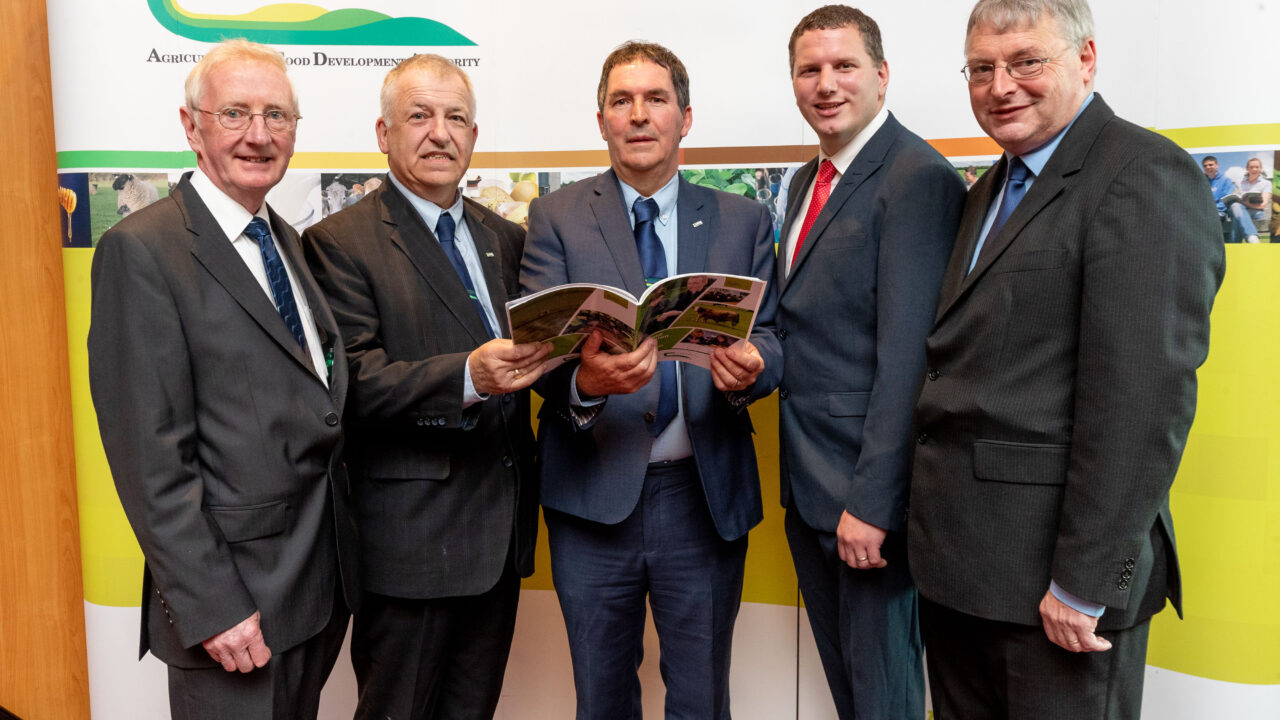A suite of new apprenticeships are set to be rolled out by Teagasc, as the main provider of further education in agriculture, food, horticulture, forestry and equine studies aims to future-proof the sector.
Under the highly-anticipated ‘Teagasc Education Vision‘ report – which is focused on “meeting future education needs” – the state agency has set out 10 goals it aims to achieve through the incorporation of 80 new “high-level” recommendations.
The proposals – expected to be introduced before the start of the September 2019 academic year – followed extensive consultation with stakeholders, a review of relevant national and international reports, and an appraisal of peer agricultural education systems in a number of EU countries over a two-year period.
The details of the looming changes to Teagasc’s courses – particularly its Green Cert (Level 5 and Level 6) and Level 7 programmes – were outlined by Frank Murphy, head of curriculum development and standards at Teagasc, at the launch of the report in Kilkenny this week.
Focusing on education pathways, staff development, teaching and training methods, Murphy emphasised that the aim is to “move away from talking about levels; and move into the area of talking about careers”.
The future of Teagasc education will be based around three distinct goals and pathways – the manager, the technician and the operative.
“Regardless of whether that is in agriculture, equine, forestry or horticulture all roles will be identified by each of the sectors,” he said.
The Manager
Murphy described the manager as someone who is involved in: managing the production; managing the asset; managing the business; and managing the finance and associated staff.
“A lot of those people will be owners and employers of staff – employing people full-time or on a contract basis. A minimum qualification for those positions in the future has to be a Level 7 qualification,” he said.
“Before Christmas last year Teagasc got confirmation that it is going to be allowed to do a new Level 7 apprenticeship in farm management. It is hoped that it will be available in colleges in September 2019,” said Murphy.
The Technician
Murphy described the technician as an enterprise manager or a unit manager.
“It will be someone who may not necessarily be an owner; but, they will have responsibility for the day-to-day operations of the farm or unit.
“They need to be capable of working independently. They need to have a detailed knowledge of their area of production and they need to take sole responsibility for the enterprise. The minimum qualification that person requires is a Level 6 qualification,” he said.
“A key recommendation for this position is the introduction of a Level 6 apprenticeship developed for farm technicians and that has been approved. It will be available in September 2019,” said Murphy.
The Operative
Murphy described the operative as a skilled individual, capable of being in charge of the day-to-day operations of a farm or a business unit.
“They have a detailed knowledge of principle production and they are capable of assisting. This position requires a minimum Level 5 qualification,” he said.
Pointing to the projected demand for operatives on the horizon – particularly in the dairy industry where it is anticipated that there will be a future need for 5,000 people to enter the dairy industry every year – Teagasc is aiming to develop a suite of “short training programmes” for operatives – some will be accredited; others will be non accredited.
Other changes outlined under the ‘Vision’ document include the establishment of a poultry programme at Level 5 and Level 6.
In terms of pigs, a Level 6 major award will also be introduced.
“In horticulture the idea of developing apprenticeships has been raised and there are two new apprenticeships in development – one in horticulture and one in the area of sports-turf management,” said Murphy, adding that it is intended that both will be available for recruitment for the start of the September 2019 academic year.
He also highlighted that there will be need for a more skills-based approach for operatives in the forestry industry.
‘Advancement in agriculture’
Murphy stressed that Teagasc will continue to work with its partners in the institutes of technology and the university sector.
“Up to this, students had an option of doing a specific purpose award – that will be discontinued.
“All our students starting full-time training with Teagasc in September 2018 will be going onto a two-year programme and they will graduate with an Advanced Certificate in Agriculture.
“The programme is also being widened so that all students in the Level 5 programme will do an introduction module where they will study all farm sectors – beef, dairy, tillage, sheep, pigs and whatever local enterprise is relevant to their locality. All students will be exposed to all the enterprises,” said Murphy.
In addition, there has also been a major review to the grass modules, where students can now do two grass modules – one at Level 5 and one at Level 6.
“This is about re-positioning grass as a core pillar of the agricultural training programme,” said Murphy.
Sustainability module
A strong focus on farm safety is key to the project recommendations; with exposure to work experience also greatly increased.
All our programme students will now complete a programme of 24 weeks of work experience – that has been introduced over two sections.
“In year one students will do eight weeks of work experience – to be split into two periods of four weeks in autumn and in the late spring of first year.
“The main work experience will be in the second year at the busiest time on farms – for livestock farms that will be in the spring; on a tillage farm that will be in the autumn,” said Murphy.
Meanwhile, all students will also now do a module on sustainable farming and the environment, to build skills and to deal with areas such as climate change.
